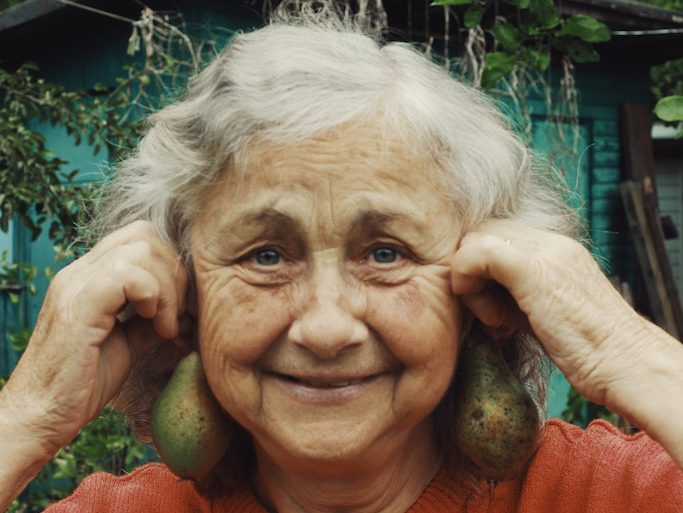What Are The Signs It's Time for Assisted Living?
As your mom and dad or loved ones age, you’ll need to assist them with making a decision about where they will live. There are numerous sorts of senior communities, as well as assisted living is just one of one of the most usual ones.
Assisted living centers are community options made for people that require assistance with everyday tasks (like food preparation as well as showering), however that do not always require a great deal of everyday treatment.
Relocating your loved one into assisted living can be a difficult transition for every person included, however it can be difficult to know when to approach the subject. Episodic moments that you can’t ignore like a damaged hip or an abrupt slump in wellness might accelerate the choice or procedure, yet generally, there’s no clear indicator.
If you believe your good friend or loved one could present a risk to their well-being by living by themselves, take these scenarios into consideration.

The Questions to Ask Regarding Health
1. Has your loved one fallen lately?
If the person falls again, how much time might they be stuck prior to somebody arriving to assist them? Constant falls, specifically if your loved one cannot obtain help, are an indication that it’s time for even more assistance and also potentially time for a retirement community. If they’re not exactly prepared for assisted living, take into consideration obtaining a medical alert system.
2. Does your loved one appear to take longer recouping after they are ill or injure themselves?
This can be an indication of a weakening body immune system, and also it may be an indicator to you that they’ll require even more care in the near future. Talk with their physician if you really feel worried. Having consistent care in a senior living community or experienced assisted living center could boost their wellness.
3. Does the person struggle with a chronic illness that is just getting worse?
If they do, it could be time to relocate them into a retirement community or assisted living home. If they’re still all right, they’ll have be able to actively participate in the decision-making as well as sufficiently healthy to make friends with other residents when they move.
4. Is your loved one taking all their recommended medicines as advised?
If they aren’t, figure out why. Is it a monetary issue, or do they fail to remember to take it? If they’re worried about rising prescription prices, a Medicare supplemental insurance policy program may be helpful. If they don’t take medicine because they fail to remember, assisted living can step in and keep your loved one on track. The team can make certain they take the medication they require.
Questions to ask about self-care
5. Do they have issues with activities of everyday living (ADLs)?
Can your loved one cook for themselves? Can they do their laundry? If they can’t, you must explore full-time care. Staying in a community that manages daily living needs like food preparation as well as cleaning can provide your loved one time for mingling and socializing.
6. Is your loved one eating regularly?
Is your loved one’s diet consisting of mostly takeout or frozen dinners? Has their weight changed substantially in the last couple of months? Fast weight gain or loss can be an indication of severe medical issues or an indication that they’re having problem preparing food. Speak with your loved one and also their physician regarding potential reasons for the change in their weight.
7. Have you noticed a change in hygiene?
Have you observed your loved one has quit taking care of themselves like they did previously? Have you noticed a brand-new body odor? These can be indicators a person is having a tough time with things like bathing, which places them in jeopardy of infection as well as boosts the chance of psychological as well as emotional decline. Issues with self-care or various other activities of everyday living (ADLs) are an indication a person might not be doing okay living on their own.
8. Are they having mobility troubles?
Does your enjoyed one have difficulty walking? Can they go up and down stairs without assistance? If they’re struggling, they might require to remodel their home for aging in place or move to a retirement community to guarantee their safety and security.
9. Has your loved one caused a crash or have they been associated with a variety of small minor car accidents?
If they cannot drive by themselves any longer, consider their access to public transport or rideshares. If that isn’t a viable option, an assisted living community that offers transport to physician’s visits as well as get-togethers can assist them with remaining mobile without the risk of harm.
10. Does your loved one need to manage a lot of home maintenance, like cutting the lawn or raking fallen leaves?
Your loved one may enjoy owning a home, the maintenance might be more than they can deal with. Have a conversation with them about whether they would prefer to reside in a community where they will not need to bother with things like upkeep and maintenance.
11. Does your loved one still keep up their home?
Are the dishes done and also bathrooms cleaned on a regular basis? If they can’t keep up with household chores, an assisted living community can lower their stress levels and also provide a better quality of life.
12. If your loved one has pets, are they cared for properly?
An inability to keep up with the care of pets may be an indication of immobility or cognitive issues. Some assisted living facilities allow pets; consider them if pets are an integral part of your loved one’s life.
Looking for community?
Questions to ask about mental health and cognitive abilities
13. Have they left the house and gotten lost?
Have you seen your loved one roaming away from their home without a clear sense of where they’re going? Straying is an indication of cognitive conditions like dementia; if this continues, speak with your loved one and their physician.
Often, people that have cognitive illnesses benefit from staying in a senior living community with a special memory care unit created to make their life safer while alleviating stress, anxiety, and confusing.
14. Has your family member or friend suddenly become angry or violent when something is upsetting to them?
Aggressive behavior or a sudden change in demeanor might be connected with the confusion that comes from conditions like dementia, which could be an indicator that they need to relocate to an assisted living community. These communities and skilled nursing facilities often have unique memory care services for people dealing with dementia.
15. Are they isolated or withdrawn?
Has your loved one quit joining social activities they used to delight in? Does your loved one go days without leaving their home? If so, talk with them about why. They might be anxious to drive or uncomfortable taking part in gatherings that used to bring them joy.
A straightforward discussion about why they spend so much time at home can help you get to the root of the issue; it may suggest they need to relocate to an assisted living community.
16. When you visit your friend or relative, do you see heaps of unopened mail?
This can be an indication of financial problems or, if they’re confused by the mail, dementia. If they’re not opening their mail, they could not be taking care of bills or financial obligations either.
Finances are typically simplified when a person moves into an assisted living community. Talk with your loved one and a financial advisor about potential scenarios.
17. Does your loved one seem like they’re happy?
Even if they can take care of themselves, they may be open to a change. If they do not seem happy, ask whether a change in their living situation can improve their life.
Questions to Ask About Their Community
18. Do they have an encouraging support system?
Is there someone nearby that regularly checks in on your loved one and visits their home? Do they maintain routine social activities or have peers they can connect with? The majority of senior housing options offer the opportunity to build community, and assisted living communities have the staff to monitor residents 24/7.
19. Have their good friends or neighbors shared any concerns with you?
If this comes up, speak with them about what they see. They might have noticed things that would indicate it’s time for your loved one to receive full-time care.
20. Can their caregiver continue doing the essentials?
Being a caretaker is hard, both physically and also emotionally. If you or other relatives are looking after your loved one full-time, it might end up being difficult for the caretaker to provide adequate care. If that holds true, your loved one might benefit from an assisted living community.
Bottom Line: When is it time for assisted living?
Recognizing that somebody you love needs constant care is hard. Recognizing that you can’t offer them that care might be challenging. If you’re worried about your aging loved one’s safety, wellness or joy, speak with them about the available senior housing options.
Involve their physician and also a financial advisor in your discussions to ensure that you as well as your loved one understand all the senior living options available to them.
If your loved one resides with you and also requires full-time care, make use of respite care centers or use home care solutions to give yourself a break.
Talk with your regional Agency on Aging or your state’s Department of Human Solutions to find out about the senior living resources in your area.
You can also read our Assisted Living guide here. Assisted Living Communities provide numerous mental and physical benefits to residents.
If you determine an assisted living community is the appropriate choice for your loved one, you’ll have a great of options.




